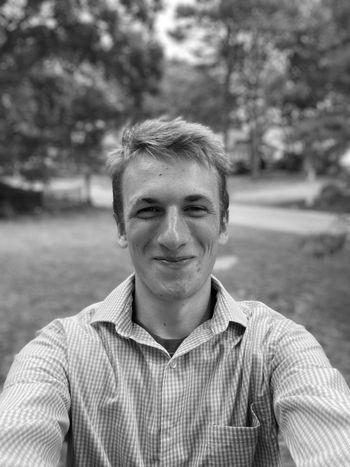University of Washington student group continues pro-Hamas activism despite suspension
A suspended pro-Palestinian student group at the University of Washington has continued organizing events and promoting Hamas-linked rhetoric despite university restrictions.
The group has advocated for armed resistance and the establishment of a single Palestinian state.
A suspended anti-Israel student group at the University of Washington (UW) continues to hold events and openly support Palestinian armed resistance against Israel.
UW suspended the group, Students United for Palestinian Equality and Return at the University of Washington (SUPER UW), last year following incidents of vandalism in 2024—per reporting by The Algemeiner.
Yet, the group has continued its activism and reportedly distributed pro-Hamas pamphlets.
SUPER UW has also expressed support for Samidoun—an organization that the U.S. Department of Treasury has described as “a sham charity that serves as an international fundraiser for the Popular Front for the Liberation of Palestine (PFLP) terrorist organization.”
On Oct. 25, SUPER UW characterized American sanctions against Samidoun as a “blatant act of repression against the Palestine movement and an extension of the US-zionist genocide against the Palestinian people.”
“We must follow the lead of Samidoun in adopting and popularizing the politics of the Palestinian revolution, including the justness and necessity of armed struggle, the right of return for all Palestinian refugees, and a free Palestine from the river to the sea,” the group added.
A student official with SUPER UW previously stated that the group’s “fight” was “never about the ceasefire,” but rather to create “a single Palestinian state, from the river to the sea.”
SUPER UW has consistently been involved in organizing pro-Palestine protests at UW, despite officially being suspended.
During one 2024 protest organized by SUPER UW, an estimated 100 activists marched around the campus chanting anti-Israel slogans, including “From the river to the sea, Palestine will be free,” The Post-Millennial reports.
They also projected “Free Palestine” onto the outside of a building and formed a human chain to avoid being removed from a closed building.
On May 5, a demonstration took place at UW in which dozens of Palestine supporters occupied a building at UW, leading to dozens of arrests. The protest, which the university decried as “violent and illegal,” was organized by SUPER UW.
A UW spokesperson has told Campus Reform that, of the 33 individuals arrested on May 6, “21 were students who have been suspended and banned from all UW campuses,” and that “[n]on-student participants are also banned from the UW’s Seattle campus.”
“Throughout the May 5th incident, the UW was in contact with campus and Seattle Jewish community leaders,” the spokesperson added. “We value these partnerships and understand their deep concern. The Jewish Federation of Greater Seattle issued a public statement noting the University’s swift response and clear denunciation of antisemitism.”
“King County jail staff are working to identify the roughly 30 people who were arrested, so at the moment we do not know how many are UW students or community members,” explained the UW administration in the aftermath of the incident.
“We are working with law enforcement and through our own disciplinary processes to ensure those responsible face appropriate consequences for their actions,” UW continued.
In another statement provided to Campus Reform, a university spokesperson said that SUPER UW will remain suspended, but that group members will continue to be able to gather in “open, public spaces.”
“SUPER UW has had its status as a Registered Student Organization revoked and applications for reinstatement will not be considered,” the spokesperson said. “The group was notified of this in mid-May. This means it does not enjoy the benefits of an active RSO, including reserving rooms on campus.”
“That said, the UW is an open, public campus that must maintain uphold [sic] the freedom of speech and expression enshrined in the U.S. Constitution, so the group or its members can gather in open, public spaces just as anyone else can,” the spokesperson added.

